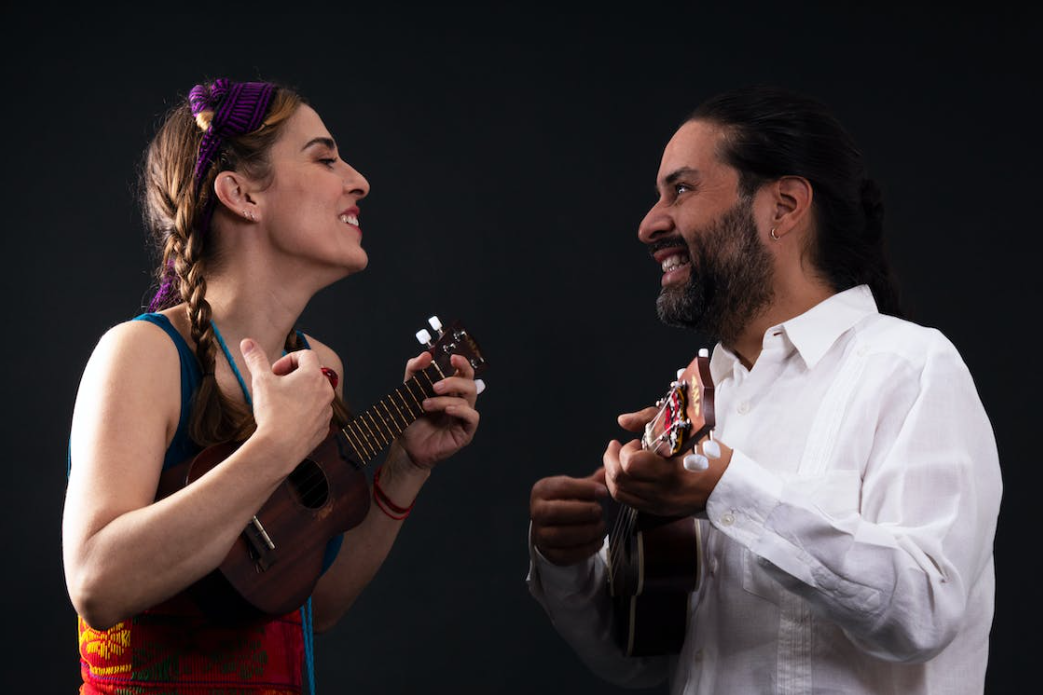Concert vs Soprano Ukulele : What's The Difference and Which is Right For You?

Are you struggling to decide between buying a concert ukulele or a soprano ukulele? If so, you're not alone!
It can be tricky navigating the various sizes and body shapes of ukuleles—do you go for portability, sound quality, or price? Don't worry, we've got your back.
The concert ukulele and the soprano ukulele are two options if you're thinking about learning to play a stringed instrument. While these two instruments may initially appear to be similar, there are some significant differences to take into account when choosing which one to purchase.
In this blog post, we'll cover everything from tone to materials used for both concert and soprano-style instruments, so that no matter which one you choose in the end, it's guaranteed to be an informed decision! So grab yourself a comfy seat, and let's start comparing these two popular types of ukuleles.
Body Size and Sound
The concert ukulele's larger size is one of the most noticeable distinctions between it and the soprano ukulele. The petite soprano ukulele is the smallest of all four standard sizes, coming in at a mere 21 inches. For those looking for something slightly bigger without getting too massive, try out its more 'grown-up' cousin, the Concert Ukulele! At 23 inches, it's still compact enough to fit into any armchair strum session. Although it might not seem like a dramatic change, even the slightest difference in size can make an incredible transformation for any instrument's sound!
Soprano ukuleles have a signature, sparkly sound that many think of as the eight-stringed instrument's calling card. With their shorter scale length and closer frets, they're an ideal choice for newbies looking to master chords quickly - though jazz aficionados might find it more challenging when playing intricate fingerpicking patterns.
If you're looking for a sweet, mellow sound to fill the room and satisfy your craving for complex tunes, then concert ukuleles are perfect! They offer richer tones than sopranos plus more projection; all thanks to their longer scale length - which makes it easier to play intricate melodies. Plus, that extra bit of body size helps them bring those beautiful notes even further.
Playability
In terms of playability, both concert and soprano ukuleles are fairly easy to learn. They both have four strings and are tuned to the same GCEA tuning. However, the shorter scale length of soprano ukuleles can make them a bit easier to play for beginners, since the frets are closer together. That being said, concert ukuleles aren't much more difficult to play, and their longer scale length can actually make it easier to play more complex music.
The two instruments' string tensions are not significantly different from one another. Compared to concert ukuleles, soprano ukuleles have slightly looser strings, which may make playing them a little more comfortable. When playing with a wider dynamic range, however, this also means they might be a little less responsive than concert ukuleles.
Portability
One of the biggest benefits of ukuleles is their portability, and both concert and soprano ukuleles are fairly easy to transport. Of the four standard ukulele sizes, sopranos are the smallest and most lightweight—which means they’re easier to transport than any other stringed instrument. They make a fantastic choice for travelling or busking because they are simple to pack in a backpack or piece of carry-on luggage.

That being said, concert ukuleles are still fairly portable and can be easily transported in a gig bag or case. Because of their slightly larger size, they may be a bit more comfortable to play for people with larger hands, making them a good option for adults or older children.
Appearance
Even though it might not be the most important factor to consider when choosing a ukulele, appearance should still be taken into consideration. The soprano size, also referred to as the "classic" ukulele, is the most common type of ukulele you'll find in stores. They have a simple, understated design that's both timeless and attractive.
On the other hand, concert ukuleles frequently have more elaborate patterns and accents. They have larger bodies, which allows for more space for decorative elements like binding, rosettes, and inlay work. Due to this, concert ukuleles may be slightly more visually appealing than soprano ukuleles.
Which is easier to play, the soprano or the concert ukulele?
If you're searching for a traditional, classic sound, the soprano uke might just be your ticket. Sporting its petite size and ease-of-play factor, it's great for those who are looking to get creative without having to worry about getting their hands too full!

On the flip side of things, though, if larger is better in your books, then perhaps reach out to friends with bigger concerts instead. Either way, there's no wrong choice here; it all depends on what tickles YOUR fancy!
CONCLUSION
Selecting the right ukulele for you can be a tough decision. Both concert and soprano models bring something unique to the table, from larger body sizes with plenty of room for decorative elements all the way down to being traditional, timeless classics that are relatively easy to learn. Ultimately, it’s up to your individual preferences, so browse around and get picky until you find just what meets your needs!
It's reassuring to know that there are many excellent options for ukuleles that fit any budget without sacrificing quality or sound when shopping for one, whether in-store or online. Try out various models until you find the one that feels most natural for your playing style. Good luck with your ukulele search!
Do you have any ukulele shopping tips or suggestions? Leave them in the comment section below!
 Lifetime Warranty
Lifetime Warranty  60 Day Returns Policy
60 Day Returns Policy 1-2 Day Delivery
1-2 Day Delivery 






























Leave a comment